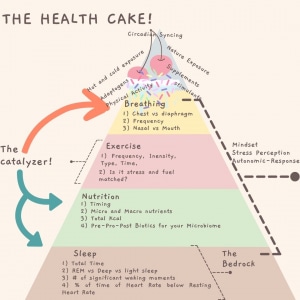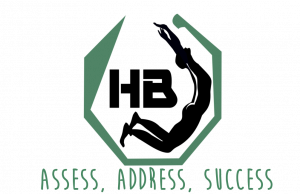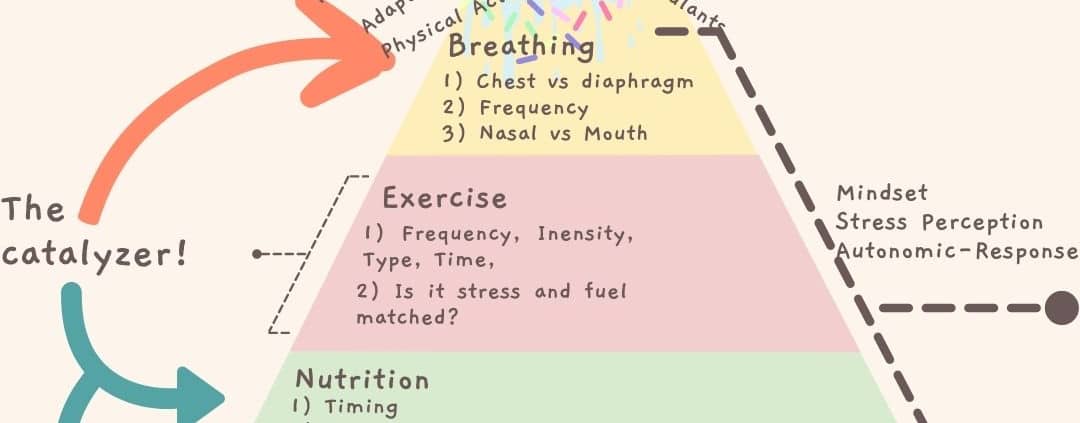Unlocking Optimal Wellness: A Guide to the Holistic Health Cake
Welcome to the Healthy Bestari Health Cake!
This metaphorical journey offers a delectable guide to maintaining optimal wellness: Sleep, Nutrition, Exercise and Breathwork. Instead of traditional nutrition pyramids, we introduce the Health Cake analogy, encompassing all aspects of healthy living!

Sleep:
- Total time in bed
- From lights out to morning alarm.
- REM vs. Deep vs. Light Sleep
- The easiest way to measure your quality of sleep is by using wearables like the Apple Watch.
- Number of significant waking moments
- We all tend to wake up during the night, if you begin counting the amount of times this can happen, you can trace the reason behind it. Maybe you forgo a glass of water before bed! In some instances, such as being a young parent, this is impossible to alter, but there are things you can do to improve your sleep quality, such as proper supplementation. We recommend taking a probiotic and Vitamin D before sleep. You can also alternate with Magnesium and Dormavit – but check with your doctor beforehand.
- Percent of time with Heart Rate (HR) below Resting Heart Rate (RHR)
- Your resting heart rate is the average HR you have when you are resting. It is a good indicator of health as the stronger your heart is, the more blood it pumps per second, hence decreasing the beats per minute. When you are sleeping you are at a state of low metabolic need, meaning a lower need for oxygen. Your body needs less oxygen then even when you are at ‘rest’ (sitting, laying down, not moving) during the day. However, certain things such as when you eat before bed, alcohol, caffeine and other factors that stress out your digestion or adrenals can lead your heart rate to be above your RHR preventing you from achieving proper rest and recovery.
Nutrition:
- Timing
- Make sure to leave enough fasting time between meals to fully digest your previous meal. It prevents your digestive tract from getting stressed out and keeps your colon happy. We also suggest avoiding meals or snacks a few hours before bed as eating before bed can tamper with your sleep quality.
- Micro and Macro Nutrients
- Ensuring you are getting enough vitamins and minerals through your diet by eating as organic as possible.
- Total Kcal
- Using a calorie counter app on your smartphone can help you count your calorie intake. Try not to get too caught up in counting calories though, it mainly comes down to eating enough and not too much and moving your body.
- Pre-Pro-Post Biotics for your Microbiome
- Prebiotics are defined by the amount of food that your gut bacteria have at their disposal. Usually non-soluble fiber, found in vegetables, fruit, whole grains, are what these bacterias feed on. The probiotics are defined by the type and diversity of the species of bacteria that are found in the small but mostly large intestine. You can add probiotic foods to your daily diet such as: sauerkraut, kimchi, kefir, raw cheese, nato, umeboshi, etc. Postbiotic is the inter-relation between bacteria that is created by the gases and by-product that one bacteria might produce, which is then used by another bacteria allowing for an even more biodiverse environment. Aim to have a good balance of both pre and probiotics in your daily diet for optimal gut health.
Exercise:
- Frequency, Intensity, Type, Time
- Try to switch up your workout routine. Aim to balance between High Intensity Cardio and Strength Training to prevent injury.
- Is it stress and fuel matched?
- When you are functioning at a high stress level, high intensity exercises can be beneficial for stress release. In order to prevent chronic stress in your body, it is important to wind down after high intensity workouts and to balance your intense workouts with calmer activities such as yoga or strength training.
- Make sure to match your fuel to your workout, carbohydrates help prepare your body for high stress exercise, whereas a protein shake can be beneficial on strengthening days.
Breathwork:
- Chest vs. Diaphragm
- Shallow vs. Deep breathing: Always take time for long deep breaths throughout your day to lower your cortisol and stress response. Try our favourite breathwork practice here.
- Frequency
- How often do you remember to breathe? Most of us don’t realize we are shallow breathing throughout the day. Therefore, it stresses out our adrenal system over time and limit you on your path to health. This book is a great way to reconnect to your breath.
- Nasal vs. Mouth
- Nasal breathing promotes the production of Nitrous Oxide, which vasodilates to increase blood flow. Despite this, achieving high ventilation frequency is more challenging due to the narrower nasal pathway compared to mouth breathing. Opting for nasal breathing during workouts challenges the cardiovascular system without surpassing the anaerobic threshold. Thus, facilitating access to the rest and digest state for better recovery.We love using a Neti Pot with Pink Salt once in a while to keep your nasal passages clear, especially during allergy season!




